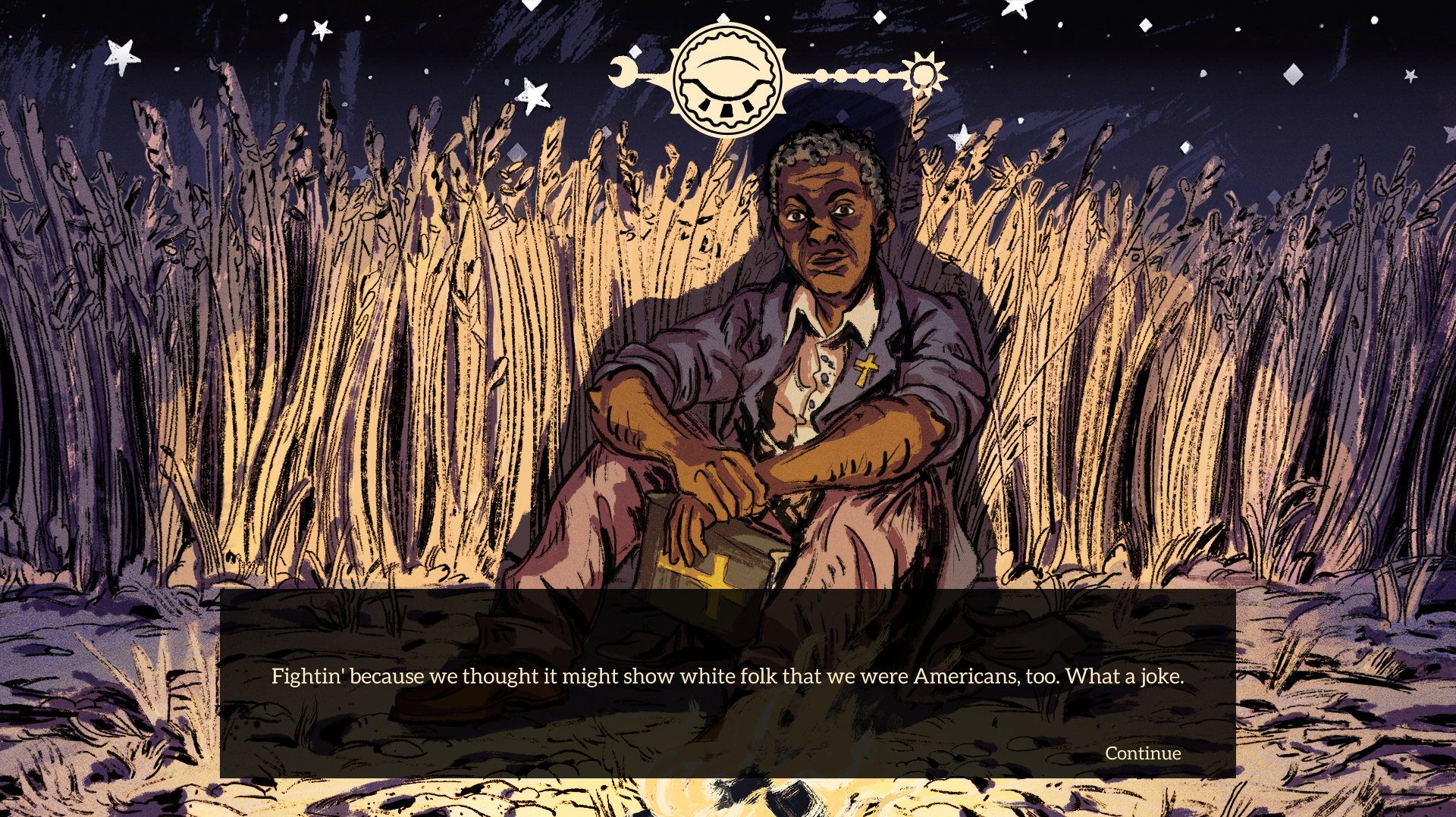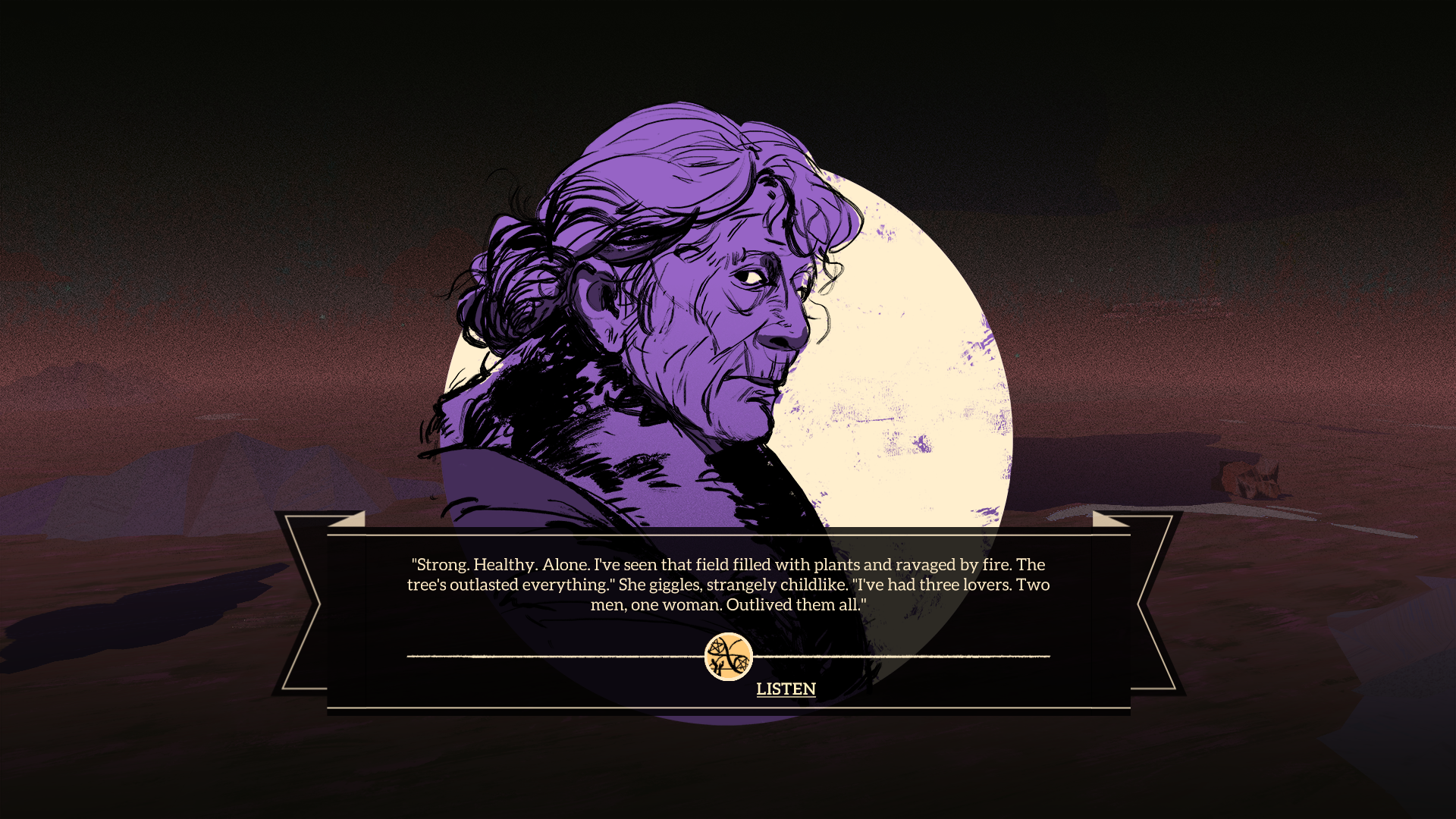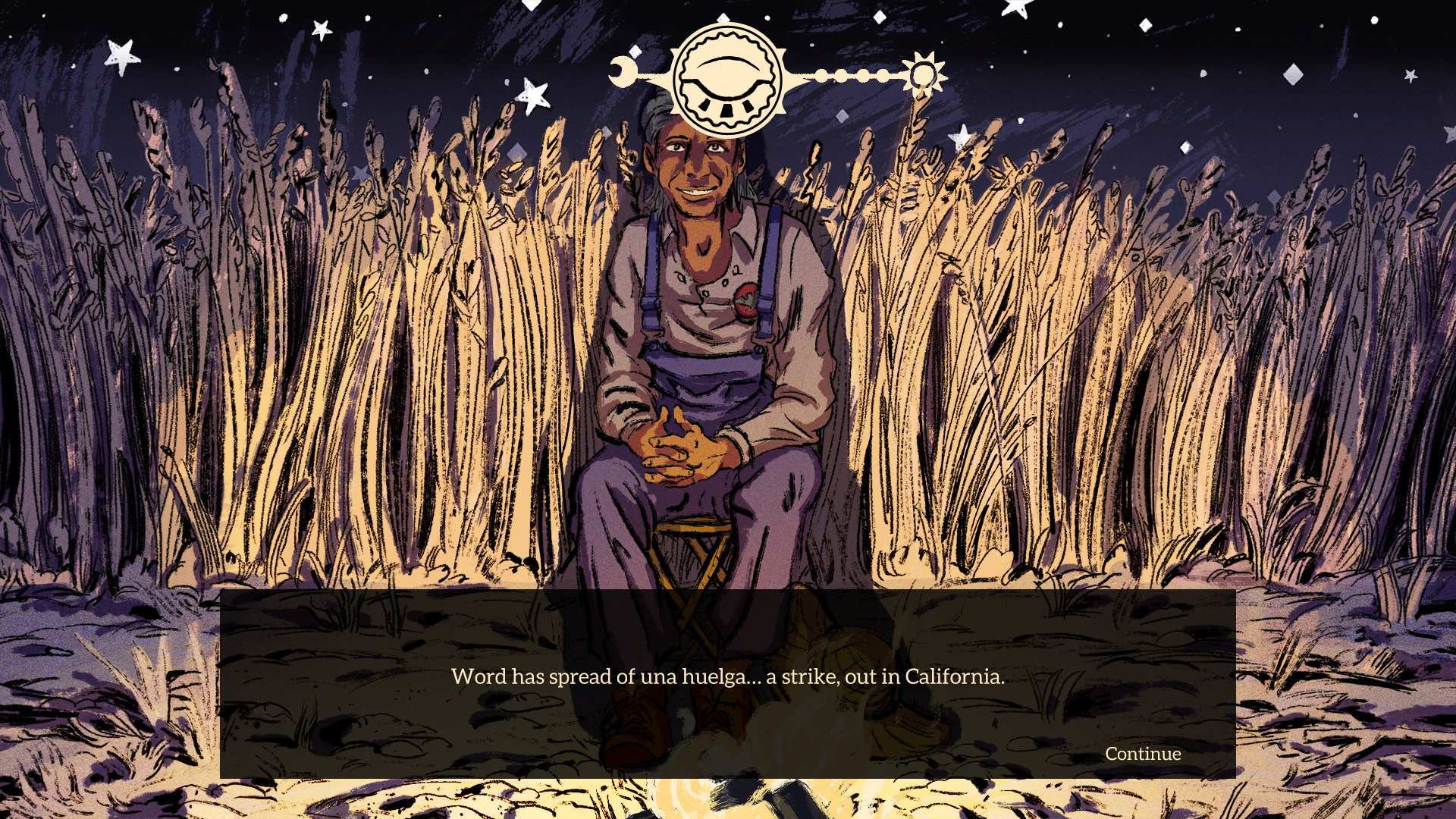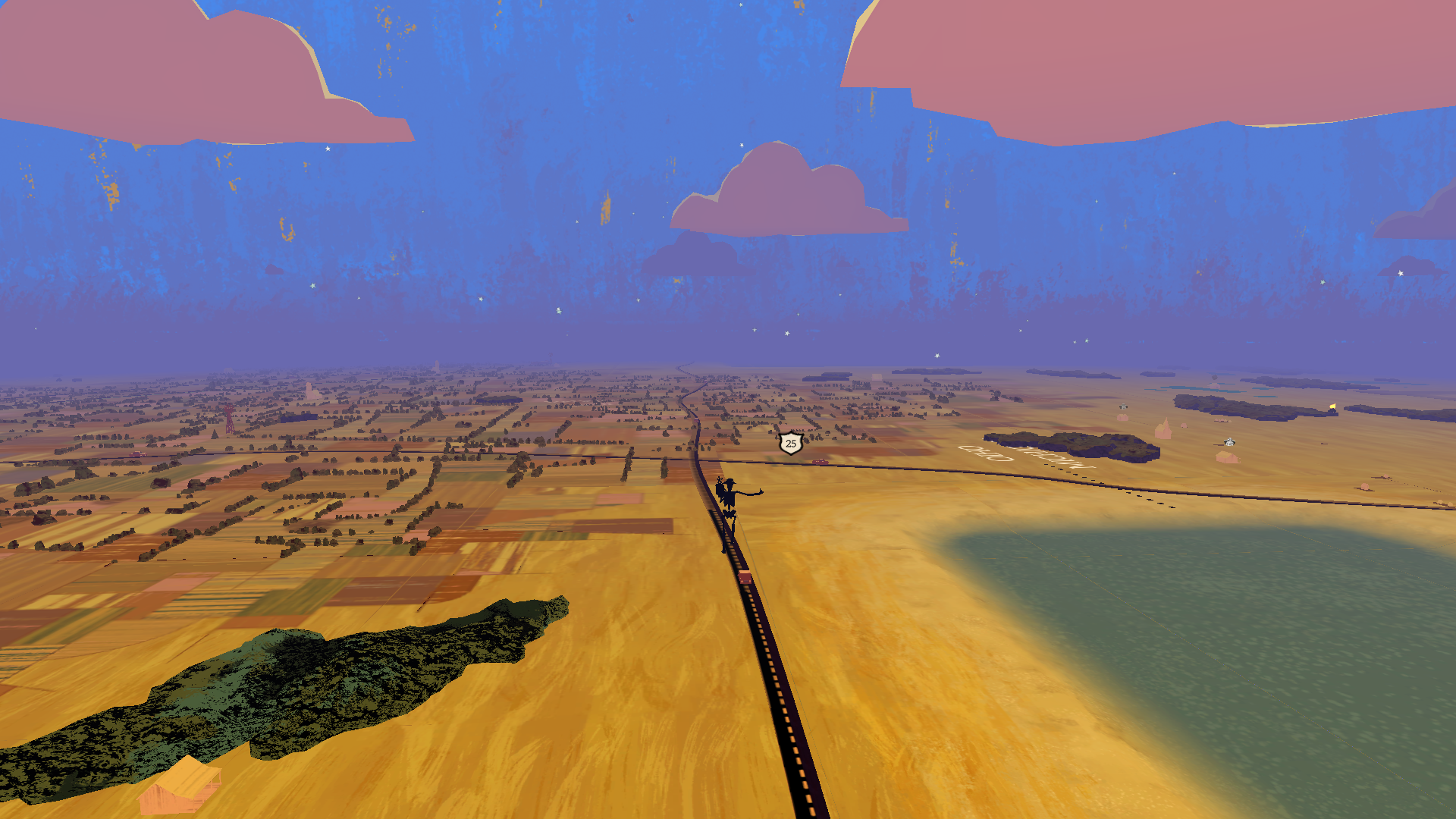In Where the Water Tastes Like Wine, stories live everywhere people do. They are clustered in towns, tucked into nooks in mountain ranges, and spread out across the whole of the continental United States.
Some of the stories that these characters tell you will feel familiar; others are further removed by the game’s Depression era setting. Yet others evoke the Southern gothic genre, entwining the supernatural with their examination of marginalization, loss, and rapid social change in order to showcase the rotten foundations of the American Dream.

As you criss-cross the states, you will occasionally meet major characters. Unlocking their stories is your main task. To do so, you’ll have to ply them with the smaller stories you’ve collected on your journey. They’ll ask for a certain mood of tale. It’s always easy when they want something spooky or sad; finding something funny is often more tricky.
Hope in hardship
Yet Where the Water Tastes Like Wine isn’t a bleak game (though here I am disagreeing with its self-description). It celebrates perseverance and the concept of sonder – the realisation that every person in the world has a life as rich as yours, with millions of details that are usually overlooked.

But sometimes, you tell a passerby those details, and that story gets told and retold until it far outgrows its original spark. This is how folklore is born, and Where the Water Tastes Like Wine is no different. Tell the story of a man searching for a dropped engagement ring in a cornfield, and you may hear it retold several states over as the tale of a place where lost things go to be found. A young driving enthusiast who can’t afford a car becomes the fastest man to drive coast to coast. A couple staying at a haunted house morph into women who can speak to the dead.
People forgotten
These vignettes, evolving and growing over time, are the game’s lifeblood. They come with gorgeous narration and a sketchily drawn interpretation of the proceedings, and are themselves beautifully written. They give you choices about how to react; the role that you want to play in the events unfolding. And then they’re tucked away in your collection to be used to tease out the narratives of the main characters.

These main stories differ in only one key way: they remain true, unembellished by being passed through wider communities. They are stories that need to be told on their own merits because they are based on real lives that are usually overlooked by both media and history; stories of people oppressed, excluded, and left behind. But neither are these stories only about hardship; there’s joy to be found here too.
A long road
All of these stories – big and small, true and created, jubilant and tragic, require you to travel to them; fitting in a game set before the instant communication of the internet and in a country obsessed with manifest destiny. The game’s travelling mainly involves walking across a map of the US, occasionally hitchhiking or hopping a ride on a train.
It’s slow, and the “whistling” rhythm game mechanic that allows you to walk faster is both a finicky distraction from the gorgeous countryside you’re passing through and tends to make the game lag. At first, this gentle progress is nothing to complain about; it gives you time to reflect on what you’ve heard and admire the different landscapes and music found in different areas. By the time you’re hunting down your last few stories, though, it can wear a little thin.

Nonetheless, it does help to make the stories feeling like organic discoveries rather than collectables scattered on an open world map, and spotting a campfire on the horizon indicating a main character nearby is always a great moment.
A journey worth taking
In my travels, I found 202 of the 219 smaller stories – a tribute to the way the game keeps you moving through new areas, enticing you to seek out just one more, and then another and another. I did not, however, find the titular place where the water tastes like wine. Intriguingly, according to the Steam achievements, no one has. It seems like a fitting mystery for a game as preoccupied by the strange as this one. (It would also be fitting if this place does not, in fact, exist.)
All in all, Where the Water Tastes Like Wine is a meditation on the nature of storytelling; its power and its shortcomings. It’s a journey through a moment, informed by all the people who shaped and were shaped by it. And it’s a tribute to often forgotten folk who deserve to have tales told about them.
 Pros
Pros
- Beautiful writing, narration, and soundtrack
- Evocation of place
- Shines a light on real stories all too often overlooked
Cons
- Slow travelling does wear thin eventually
Conclusion
Where the Water Tastes Like Wine is an achingly gorgeous story built from hundreds of smaller tales, each with something to say about America, life, and humanity.



